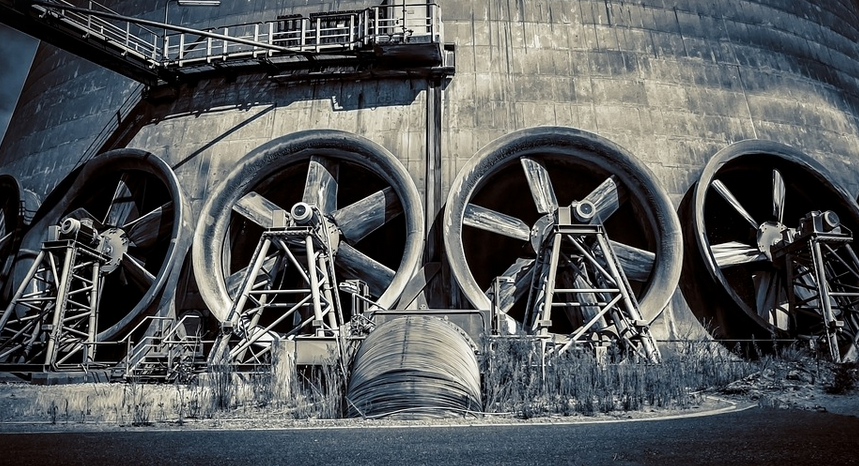
Rubber Coated U Bolts
Beyond their obvious utility, there’s something inherently appealing about a bolt that combines the robustness of metal with the resilience of rubber. That’s because rubber-coated U-bolts address real-world challenges we encounter when securing things.
From the rusting steel of industrial machinery to the delicate balance of construction projects, there are countless scenarios where these versatile fasteners can make a difference. Let’s delve into the specific benefits that make rubber-coated U-bolts so compelling and explore their applications in detail. ### Understanding the Fundamentals: The Anatomy of a Rubber-Coated U-Bolt
Before diving into their uses, it’s crucial to understand the inner workings of these reliable fasteners. A rubber-coated U-bolt is built around the core principles of strength and adaptability.
- Strong Foundation: The metal itself plays a critical role in providing structural integrity. It’s essential for withstanding heavy loads and maintaining a sturdy hold.
- Flexible Protection: The rubber coating is the key differentiator, offering resistance to harsh weather conditions and stress-related wear.
- Versatile Application: U-bolts are used in various settings due to their adaptability. Whether it’s securing a heavy piece of equipment or creating secure connections within a framework, they deliver.
You can see the inherent advantages right there — a solid metal base for stability and a flexible rubber layer for protection. It’s a winning combination that addresses the challenges of varying situations.
### The Power of Rubber: Advantages Beyond Protection
While the rubber coating serves as the primary protector, it’s important to recognize the deeper benefits that come with this seemingly simple addition.
- Weather Resistance:** The rubber coating acts as a shield against the elements – rain, snow, heat, and even extreme cold. This makes these bolts ideal for outdoor applications where weather can be unpredictable.
- Vibration Dampening:** The flexibility of rubber also helps dampen vibrations from machinery and other sources of movement, making them perfect for sensitive equipment and structures that need to remain in balance.
- Reduced Friction: Rubber coatings create a smoother surface compared to metallic surfaces. This reduces friction, making it easier to tighten and secure connections without unnecessary force or damage.
Rubber-coated U-bolts go beyond mere protection; they offer a more reliable connection with added functionality.
### Real-World Applications: Where Rubber-Coated U-Bolts Shine
From heavy duty industrial settings to everyday construction projects, rubber-coated U-bolts have proven their worth in numerous applications.
- Heavy Machinery and Equipment:** These bolts are a staple for securing various machinery components like pumps, engines, and gearboxes. Their ability to withstand stress and resist the elements ensures smooth operation even under demanding conditions.
- Construction and Infrastructure:** From bridges and buildings to pipelines and infrastructure projects, U-bolts are indispensable for providing secure connections that can withstand heavy loads and external forces.
- Automotive Industry:** These bolts play a crucial role in vehicle mechanics. They hold engine mounts, trailers, and other critical components firmly in place
- Marine and Offshore Environments:** The resistance to salt spray and harsh weather makes them ideal for marine and offshore applications where durability is paramount.
The versatility of rubber-coated U-bolts ensures their presence in various sectors, making them an ever-reliable choice for securing important components across the board.
### Choosing the Right Rubber-Coated U-Bolt: A Guide to Compatibility and Performance
With the understanding of benefits gained from the previous sections, choosing the right rubber-coated U-bolt becomes a natural process.
To make the best choice for your project:
- Size Matters:** The most obvious thing to consider is size. U-bolts are available in several sizes, and you need to choose one that matches the load capacity of your application.
- Type of Material: You’ll often find a variety of rubber coatings for your U-bolt options, such as natural rubber, synthetic rubber, or even EPDM rubber. This can affect the overall performance and longevity of the bolt.
- Material Quality:** The metal used in the bolt should be strong enough to withstand stress and corrosion; ensure a high-quality material for long-lasting use.
These factors help you choose the right rubber-coated U-bolt that meets your specific requirements, ensuring lasting performance.
### The Lasting Power of Rubber-Coated U-Bolts: A Legacy Built on Durability and Adaptability
While we’ve explored the functionality, applications, and benefits of rubber-coated U-bolts, it’s worth acknowledging their enduring legacy. These fasteners have become a staple in many industries because of their robustness and adaptability.
Looking ahead, as technology improves and new materials are developed, these resilient bolts will continue to play an essential role in engineering structures, machines, and more. They offer a solid foundation for the future of reliable connections.
Whether you’re looking for a secure connection or simply need a solution that can stand up to the test of time, rubber-coated U-bolts are worth considering.